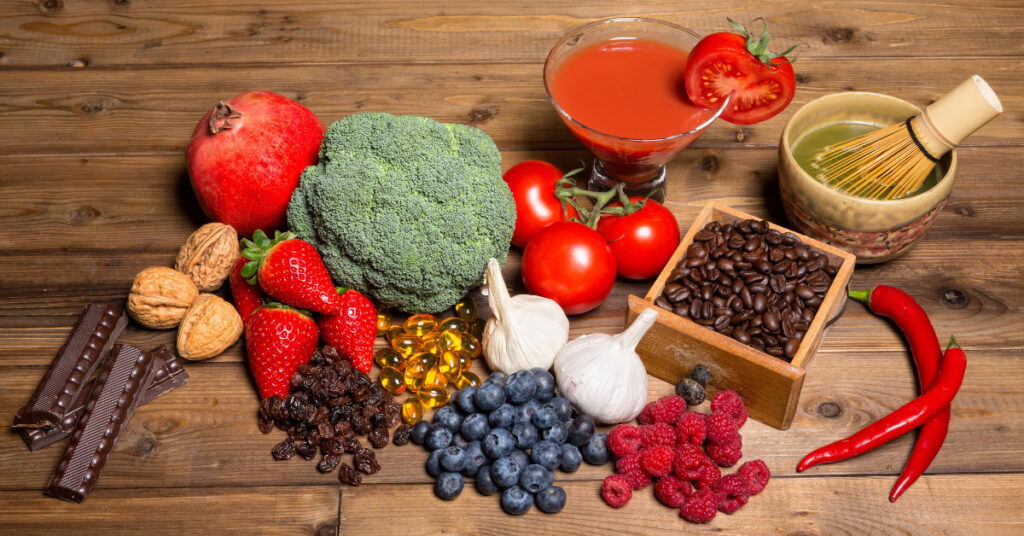In Traditional Chinese Medicine (TCM), the Five Element theory is an integral part of understanding the interconnectedness between nature and the human body. This theory recognizes that each season is associated with a specific element and organ system, and eating according to these seasonal influences can support overall health and well-being. In this article, we explore the concept of Five Element Nutrition and how eating with the seasons can promote optimal health.
Understanding the Five Elements:
The Five Elements in TCM are Wood, Fire, Earth, Metal, and Water. Each element corresponds to specific organs, seasons, colors, flavors, and energetic qualities. They represent different aspects of nature and symbolize the dynamic relationships within the natural world and the human body.
The Relationship between Five Element Nutrition and Seasons:
TCM emphasizes the importance of harmonizing the body with nature’s cycles. Eating with the seasons aligns with this principle, as it allows us to adapt our diet to the changing energy of each season. By incorporating seasonal foods, we can support the associated organ systems, balance our Qi (vital energy), and promote optimal health.
Five Element Nutrition Guidelines:
- Spring (Wood Element): During spring, focus on foods that support the Liver and Gallbladder, the organs associated with the Wood element. Include fresh, green leafy vegetables, sprouts, and sour foods such as lemon or vinegar. These foods help to detoxify the body and promote smooth energy flow.
- Summer (Fire Element): In summer, the Heart and Small Intestine are the organs related to the Fire element. Include cooling foods such as watermelon, cucumber, and mint to help balance the body’s heat. Lightly cooked or steamed vegetables, berries, and bitter foods can also be beneficial.
- Late Summer (Earth Element): Late summer is associated with the Stomach and Spleen, the organs of the Earth element. Focus on nourishing foods that support digestion, such as whole grains, root vegetables, legumes, and sweet foods like honey or dates. Incorporate warm and cooked foods to support the digestive system.
- Autumn (Metal Element): During autumn, the Lungs and Large Intestine are the organs linked to the Metal element. Include foods that help strengthen the respiratory system, such as pears, apples, ginger, garlic, and white-colored foods. Incorporating pungent flavors can also support the body’s ability to eliminate toxins.
- Winter (Water Element): Winter corresponds to the Kidneys and Bladder, the organs related to the Water element. Focus on warming and nourishing foods like soups, stews, root vegetables, seaweed, and foods with dark colors such as black beans or black sesame seeds. Include salty flavors in moderation.
Additional Considerations for Five Element Nutrition:
- Balance and Moderation: The key to Five Element Nutrition is balance and moderation. Incorporate a variety of foods from each element throughout the year and adapt your diet to your individual needs and constitution.
- Local and Seasonal Foods: Choose locally grown, organic foods whenever possible. These foods are naturally aligned with the energy of the season and offer higher nutrient content.
- Mindful Eating: Practice mindful eating by savoring your meals, chewing thoroughly, and cultivating gratitude for the nourishment provided by the foods.
- Individualized Approach: Consult with a qualified TCM practitioner to receive personalized recommendations based on your unique health needs and constitution.

Five Element Nutrition emphasizes the importance of aligning our diet with the seasons to support optimal health and balance in the body. By incorporating foods that correspond to each element and associated organ systems, we can nourish our bodies in harmony with nature. By embracing Five Element Nutrition principles, we can promote overall well-being, enhance our energy, and strengthen our connection to the natural cycles of life.









